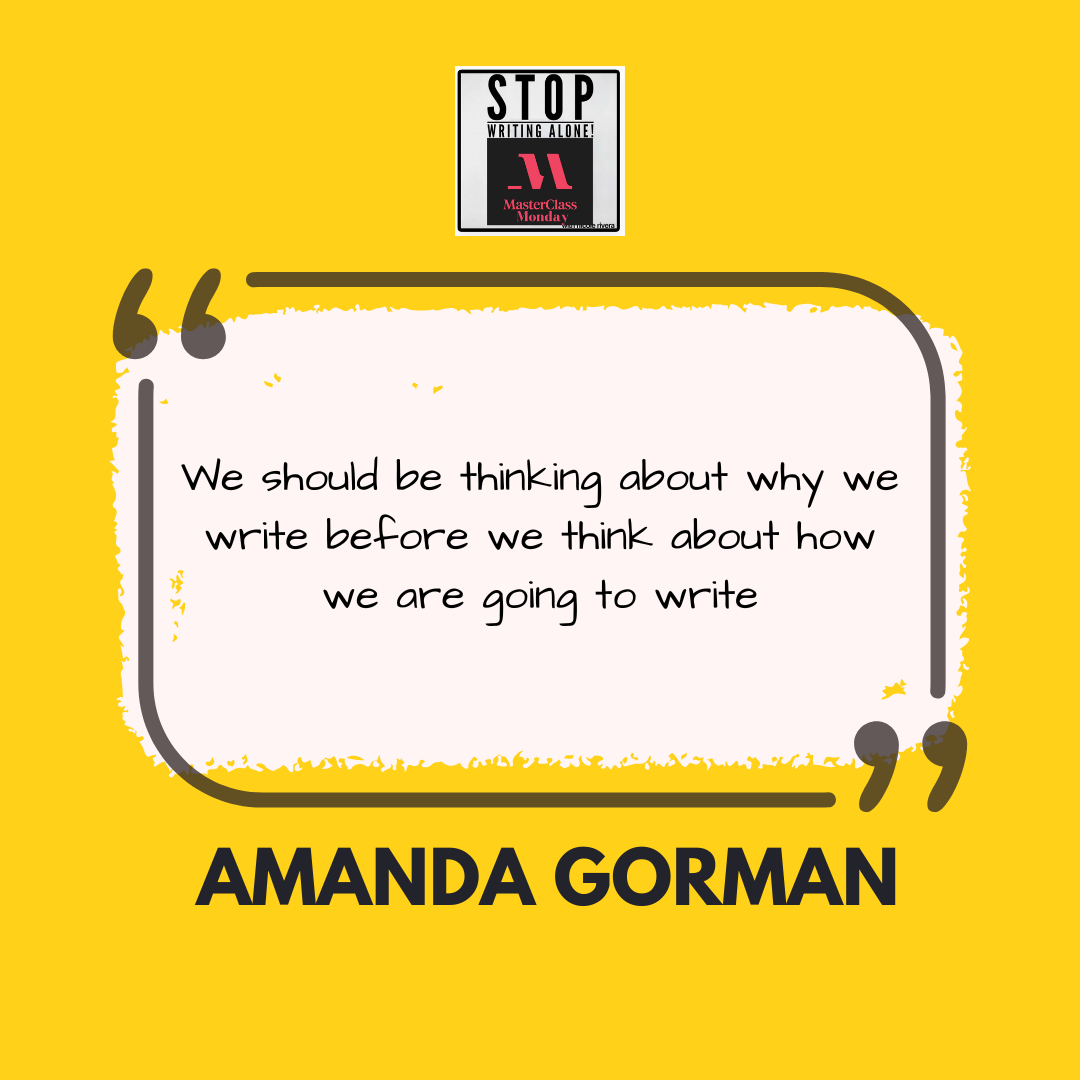Amanda Gorman, American poet and activist who moved the nation with her poem The Hill We Climb at the 2021 Presidential Inauguration of President Joseph Biden, has a Masterclass on Writing and Performing Poetry. Her lessons on close reading, researching, brainstorming and revision are all fantastic whether you are writing poetry or prose. In planning the first post for MasterClass Monday here in Stop Writing Alone, there were so many gems I could have brought to the community this week about all the different techniques and tips Gorman shared, but it was her discussion around finding purpose in our writing that felt like the perfect place to begin.
The Power of Purpose
In Gorman’s 9th lesson Finding Your Unique Poetic Voice we learn how Gorman identifies her own voice and the various techniques she uses to express herself on the page. She points out how we, too, can discover our unique voice in our writing. However, she then shifts gears a bit and says that she doesn’t believe that we need to know our voice before we know our purpose. She then takes it a step further when she says,
We should be thinking about why we write before we think about how we are going to write.
I couldn’t agree more. In fact, in last month’s Story Club Writing Exercise I asked writers to dig deep to find out their personal mantras and sayings in order to weave authenticity into their writing by identifying the things that move them.
Gorman takes this a step further, not simply asking writers to know themselves, but to create what she calls a “Poetic Mantra” for ourselves.
The What & How Of Our Poetic Mantra
The Poetic Mantra, as defined by Amanda Gorman, is a statement of who we are as poets (writers). It is a declaration of our own history and identity and our trajectory in order to remind us why we write. As an example, this is Amanda Gorman’s Poetic Mantra:
I’m the daughter of Black writers.
We’re descended from Freedom Fighters
Who broke their chains and saved the world.
They call me.
While Gorman admits she created hers using a song from the movie Moana, she gives us a three line format to create our own poetic mantra.
LINE 1 is your IDENTITY. Write, “I am,” and then write the name, or names, you most identify with
LINE 2 is your HISTORY: Write a line about who or what you come from
LINE 3 is your TRAJECTORY: Write a line about what you are moving towards
Gorman reminds us that each of these lines can be as specific or as broad as we desire.
Once you have created a Poetic Mantra (or Writer Mantra, if you like), Gorman recommends that you write it out or print it out and put it physically close by you where you write to serve as an ever-present mantra of your purpose.
Share Your Poetic Mantra!
You had to know I was going to ask you for your mantra.
Share it in the comments!




